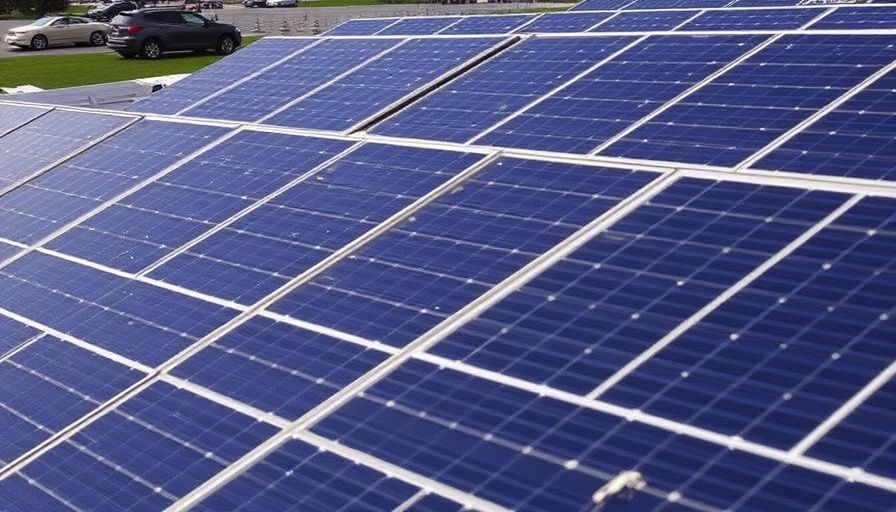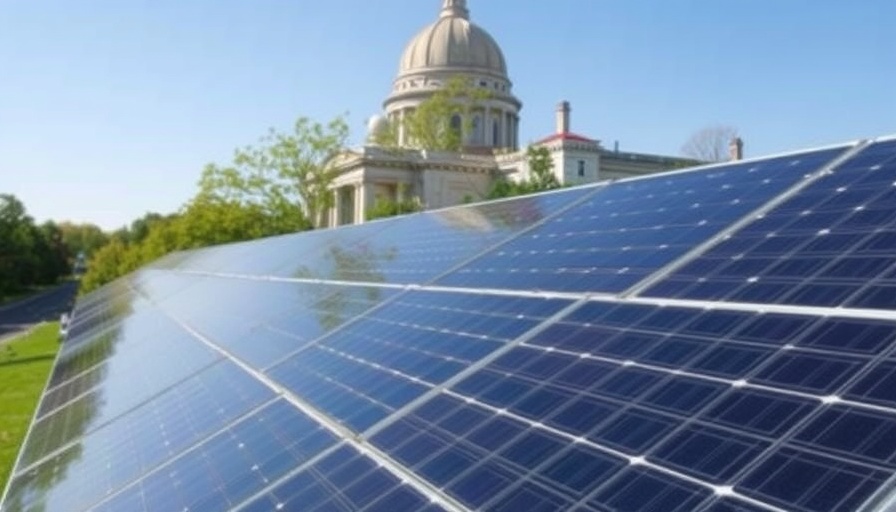
The Impact of Anti-Solar Legislation in Texas
In a significant turn of events, recent anti-solar bills aimed at limiting solar energy development in Texas have failed to pass in the state House. This outcome is particularly noteworthy, considering Texas is a leading state in solar power generation, with increasing numbers of residents opting to invest in solar panel installations.
Why Did These Bills Fail?
One critical factor in the defeat of these anti-solar legislative efforts was the advocacy from solar proponents, including homeowners and environmental groups. These stakeholders successfully argued that such legislation would hinder economic opportunities in a state that is already struggling with rising energy costs.
Moreover, the pushback reflects a broader trend; many Texas homeowners, especially those aged 30-65, are seeking sustainable and cost-effective energy solutions. As energy prices fluctuate, more families are looking to solar as a viable alternative. Surveys indicate that homeowners investing in solar can expect a considerable increase in their home value, alongside lowering their energy costs, thus fostering resistance against anti-solar initiatives.
The Role of Community Advocacy
Community engagement played a decisive role in the defeat of the bills. Eco-conscious groups mobilized support through awareness campaigns, showcasing the long-term benefits of solar power, not just for the individual household but for the environment overall. As energy security becomes a pressing concern in light of climate change, homeowners are recognizing their leverage in driving legislative outcomes. These community actions reflect growing sentiments suggesting that legislation should favor renewable energy sources, which align with Texan values of independence and economic freedom.
Current Landscape of Solar Energy in Texas
Texas boasts some of the most abundant solar resources in the country, and the state's infrastructure is increasingly adapting to accommodate this renewable energy source. Despite previous attempts to halt its growth through restrictive legislation, the success of solar installations reflects a changing mindset among Texans. As of recent reports, Texas ranks first in total installed solar capacity, a clear indicator of how the market is evolving even in the face of adversity.
Future Predictions: Solar's Path Ahead in Texas
Looking ahead, it is predicted that solar adoption in Texas will continue to thrive, providing crucial insights for homeowners and investors alike. With favorable policies, which are currently being discussed as an extension of the recent legislative success, Texas could see an acceleration in solar adoption that aligns with both economic and environmental goals.
Although anti-solar bills may have momentarily disrupted the progress, the public outcry and advocacy surrounding solar developments signal a collective push towards greener policies. This indicates that future legislative efforts will need to align with the evolving consumer demand for cleaner energy.
Why This Matters to Homeowners
For homeowners, particularly the eco-conscious, the defeat of anti-solar bills represents a victory that could lead to lower energy costs. Solar energy not only enhances the functionality of homes but also acts as a hedge against rising utility prices.
Additionally, as states like Texas continue to implement and support solar energy initiatives, homeowners who embrace this trend will find considerable value in their investments. Understanding these dynamics not only empowers consumers but also reinforces the significance of their voices in legislative processes.
Call to Action
Homeowners looking for ways to reduce energy costs and enhance their property value should consider exploring options in solar energy. By staying informed and engaged, you can participate in the ongoing conversation around sustainable energy in Texas!
 Add Row
Add Row  Add
Add 



 Add Row
Add Row  Add
Add 
Write A Comment